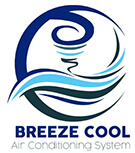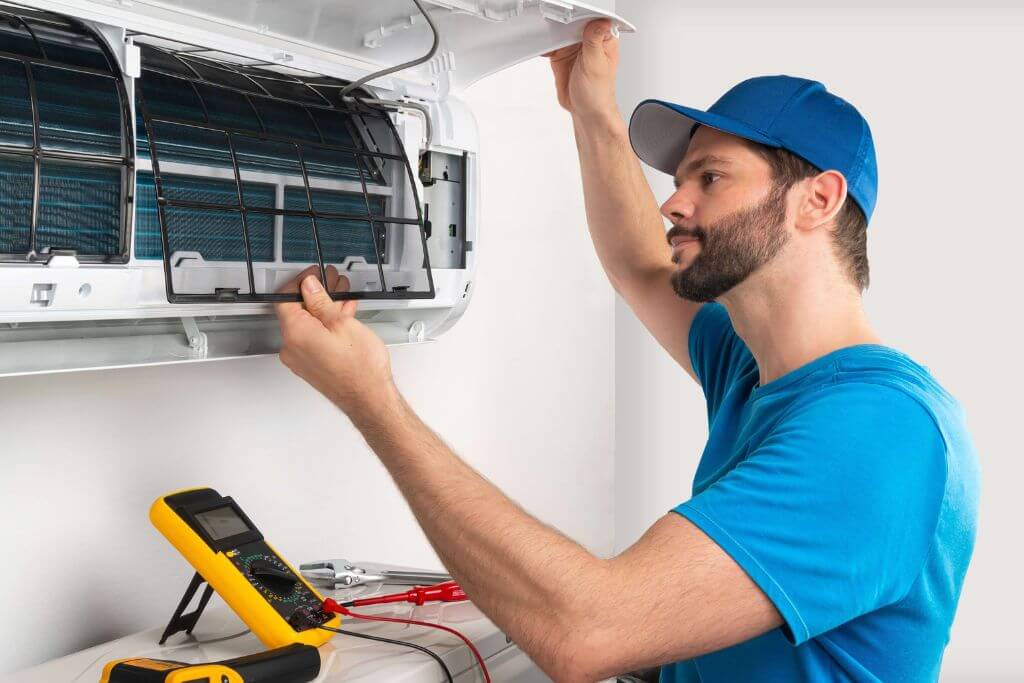Using air conditioners in daily life makes the importance of cooling devices clear, particularly during the hot summer months. These gadgets aid in keeping us cool and comfortable indoors. You’ve come to the perfect spot if you want to learn about the fundamentals of an air conditioner. This blog will discuss the essential parts, operation, and advice to troubleshoot your air conditioners.
Types of Air Conditioners
Various types of air conditioners are available on the market, including window air conditioners, split air conditioners, zoned air conditioners, and central air conditioning systems. Each type has advantages and disadvantages, depending on your specific needs and budget.
Critical Components of an Air Conditioner
Most people in modern cultures need to become more familiar with the elements of cooling equipment, which shows that they are also not familiar with the fundamentals of an air conditioner. Therefore, people must at least educate themselves on the main parts of the equipment to use their AC and enjoy its peak performance.
Compressor
The compressor is one of the most essential parts of an air conditioner. First, the refrigerant gas is compressed, raising its temperature and pressure and enabling it to absorb heat from the inside air. It then sends the hot gas to the outside unit, which loses heat and transforms into a cold liquid.
Condenser coil
The evaporator coil, another essential component, converts heat from the interior air into cold air. It functions by enabling the liquid refrigerant to turn into a gas and absorb heat.
Condenser
On the other hand, the condenser coil allows the refrigerant to return to being a cold liquid by discharging heat into the ambient air. In addition, the outdoor unit’s fan aids heat transfer by moving air across the condenser coil.
Thermostat
The thermostat, which regulates the temperature and humidity levels, and the air filter, which filters out dust and other airborne contaminants, are other crucial components of an air conditioner.
Working Principles of an Air Conditioner
An air conditioner’s operation is based on the refrigeration cycle:
- This cycle transfers heat from one place to another using a refrigerant. By absorbing heat from the inside air and releasing it outdoors, the refrigerant in an air conditioner cools the atmosphere there.
- The compressor compresses the refrigerant gas, raising its temperature and pressure, which starts the refrigeration cycle. When the refrigerant reaches the condenser, it releases heat and becomes liquid. The liquid refrigerant then travels to the evaporator, picking up heat and turning it back into a gas.
- The expansion valve decreases the refrigerant’s pressure, allowing it to cool and restart the cycle.
Maintenance Tips for Air Conditioners
The effective operation and durability of your air conditioner depend on proper maintenance. The following advice will help you maintain the health of your air conditioner:
- Regularly swap out the air filter to maintain proper airflow and avoid dust accumulation.
- Keep the outside unit clean and clear of obstructions to promote proper airflow and guard against unit damage.
- Make an appointment for yearly maintenance with a qualified HVAC specialist to check for leaks, clean the coils, and carry out other essential procedures.
- Save energy using a programmable thermostat to control the temperature according to your schedule.
- To save money on energy costs over time, think about switching to a more energy-efficient model.
Conclusion
When it’s hot and humid outside, air conditioners are a must for keeping a suitable indoor climate. However, you may choose wisely about acquiring and caring for this crucial equipment if you know an air conditioner’s essential parts and fundamentals. Also, remember to follow the maintenance advice provided in this article to maintain your air conditioner in good working order.

